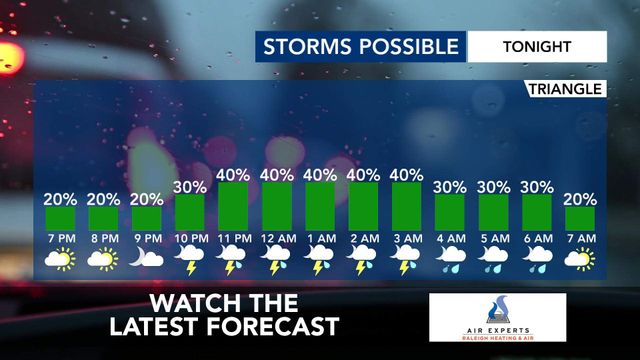NC election results could be 30 minutes late this year. Why that's now leading to conspiracy theories
A new state law will lead to slight delays in the reporting of results on Election Day — a consequence that has spawned conspiracy theories on social media that it's a ploy by state officials to steal the election.
The issue highlights the tricky position North Carolina's Republican state lawmakers are in: They’re the ones who wrote and passed the law last year. Their main explanation was that it was meant to improve confidence in election integrity, something polls show is particularly low among Republican voters.
But that new law — which also moved up the deadline for mail-in voting, based on Trump’s complaints about the practice in 2020 — appears to have had the opposite effect for at least some conservatives, who say the delay in results will be used by state officials to rig the election.
In the past, the state was always able to report the results from early voting as soon as the polls closed on Election Day. But elections officials now aren't allowed to start counting any votes until after the polls close at 7:30 p.m. That could cause a delay of 30 minutes to an hour for the early voting numbers, the North Carolina State Board of Elections said Tuesday.
“The State Board of Elections must comply with state and federal laws,” Pat Gannon, a spokesman for the elections board, said in an email on Wednesday. “The law about the counting of in-person early votes could not be clearer. … In-person early votes will still be counted and reported publicly on election night, just a little later than usual — because of the new law.”
Not everyone is convinced the changes were so minor.
"The [elections board] is announcing their cheat right out in the open," one self-declared former GOP official wrote on the social media platform X, formerly known as Twitter.
"Delay = cheating" wrote another self-identified conservative.
Neither explained exactly what they believed the election board’s alleged cheating scheme was meant to accomplish during the primary election. But after garnering thousands of views, the claims prompted the elections board to wade directly into the conversation.
The NCSBE’s official account responded to one post: "No, we are saying that changes in the law necessitate changes in process. Please read the law, which is available via links in the press release. Talk to someone who understands the process. Spreading misinformation and conspiracy theories about elections helps no one."
Voter fraud rare
Voter fraud is nearly nonexistent in North Carolina, state audits over the years have shown. An extensive audit in 2016 found 508 potential cases of illegal voting statewide, or 0.01% of the nearly 5 million ballots cast. Even if all of those allegations turned out to be true, elections officials said, no election results would've been affected since the number was so small and involved voters on both sides of the aisle.
The state was hit by a scandal in 2018, when Republican congressional candidate Mark Harris’ campaign benefited from hundreds of fraudulently handled absentee ballots. Investigators traced it to a team run by a Harris campaign operative, McCrae Dowless. Harris bowed out of the race in order to stop the investigation, leading to a do-over election in 2019 that sent Republican Rep. Dan Bishop to Congress.
Dowless died while awaiting trial, but several of his helpers have since been convicted for their roles in the scheme. Harris was never criminally charged, and he's running for Congress again this year — to replace Bishop, who's leaving Congress to run for attorney general. Harris faces five other Republicans, including state Rep. John Bradford, in the GOP primary.
New law's many election changes
The main authors of the law that caused the potential delay in results, Senate Bill 747, are Republican Sens. Warren Daniel, Ralph Hise and Paul Newton. They didn’t immediately respond to a request for comment Wednesday about the conspiracy theories and the election board’s response.
SB 747 made numerous and wide-ranging changes to elections law. It passed purely along party lines last year.
Republican leaders defended the changes as necessary to improve voters' confidence in elections. Only 31% of GOP voters nationwide believe Democratic President Joe Biden legitimately defeated Republican Donald Trump in 2020, a Washington Post/University of Maryland poll found last month.
Democrats opposed SB 747, saying its new rules — particularly the changes to mail-in voting — were thinly veiled attempts at voter suppression, meant to cause legitimate ballots to be thrown in the trash since Democrats tend to use mail-in voting more than Republicans. They also raised concerns that new, looser rules for partisan poll observers could lead to heightened tension and voter intimidation at polling places this year.
The law is being challenged in court, but for now remains in place.














